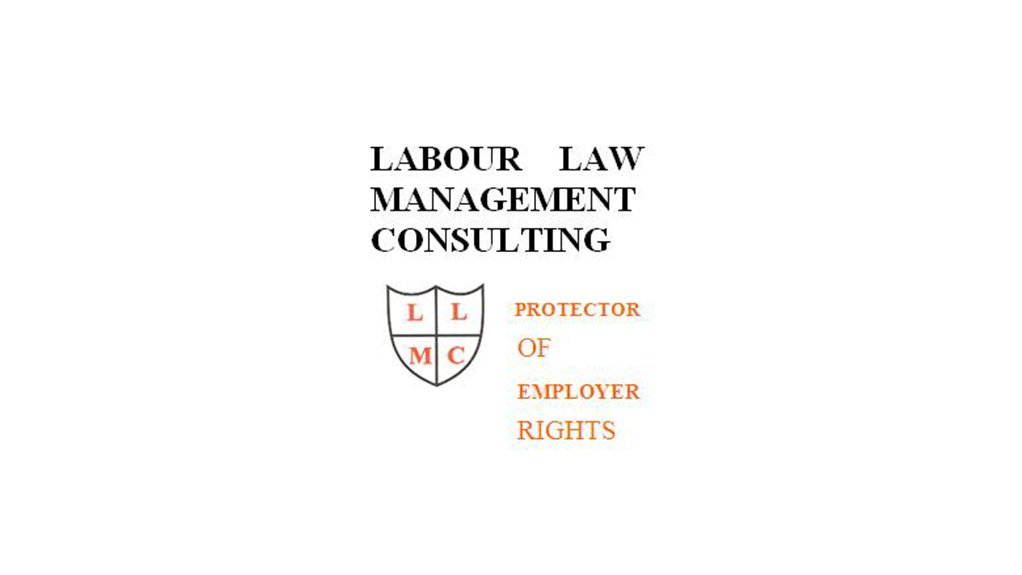Last month I pointed out that defining the crucial labour law term “unfair” is extremely difficult for employers and employees. Because the term is not defined in any of the statutes parties tend to interpret the concept in a way that suits their needs and legal position.
In my last week’s article I looked at dictionary definitions and at statutory usage of the term ‘unfair’. I suggested that the act of an employer would be seen in labour law to be ‘unfair’ if it infringes the employee’s rights, is one-sided, unnecessary and/or inappropriate under the circumstances. In order to develop an understanding of what this means in practice we will look this week at some actual cases where the CCMA, Bargaining councils and the courts have interpreted the term ‘unfair’.
A key duty of the above mentioned dispute resolution bodies is to distinguish between fair and unfair practices. For example, in the case of Goodyear SA (Pty) Ltd vs CCMA and others (as reported in People Dynamics 36, January 2004) the Labour Appeal Court had to deal with an alleged case of unfair dismissal. According to the report the employee was supposed to have begun his shift at 23h00. However, at approximately 18h00, 5 hours before he was supposed to start work, he was woken by his colleagues. They had been sent by the employer to ask the employee to start work earlier due to absenteeism on the earlier shift.
Although the employee was under the influence of alcohol he agreed to this request and began work early. However, due to his intoxicated condition while on duty he was disciplined. As he already had a final warning for a similar infringement he was fired. He referred an unfair dismissal dispute to the CCMA. At arbitration the commissioner held that the dismissal was unfair, not because intoxication at work is acceptable but because the employee had been doing the employer a favour by going on duty early. The arbitrator reinstated the employee and ordered the employer to give him six months’ back pay.
The employer took this award on review to the Labour Court which upheld the CCMA’s decision. Goodyear took the matter further to the Labour Appeal Court on the grounds that the arbitrator’s decision was irrational and unjustifiable. The Court agreed that reporting for duty in an intoxicated state was wrong but disagreed that dismissal was the appropriate penalty under the circumstances of this particular case. “Subtle pressure” to begin work earlier and “his befuddled state” due to his condition “had induced him to agree” to go to work. This was a valid mitigating factor that the CCMA was entitled and required to take into account. (A mitigating factor is one that may reduce the severity of the penalty) The Court therefore found against Goodyear, upheld the reinstatement and ordered the employer to pay the employee’s legal costs.
In this case the CCMA and two Courts found the dismissal to be unfair because:
• The employee’s right to have a valid mitigating factor considered had been infringed by the employer;
• As a result the penalty arrived at was too harsh and inappropriate in this particular case.
Hence the ‘unfairness’ decision here was based on whether the “punishment suited the crime” in the light of the employee’s rights and the individual circumstances of the case.
In the case of Mofokeng vs KSB Pumps (2003, 9 BALR 982) the Metal and Engineering Industries Bargaining Council had to decide whether the employer had been justified in dismissing an employee who had allegedly deserted his employment. The employee had been in jail for four days and, on returning to work, was fired for desertion. He was given a cheque in full and final settlement of all disputes. The arbitrator found that:
• The employee had accepted the cheque as part of his termination pay and not as a settlement offer. He was therefore not prevented from raising the unfair dismissal dispute;
• Desertion occurs when the employee’s actions indicate that he does not intend to return to work;
• Mofokeng had informed the employer as to the reason for his absence and had returned to work immediately on his release;
• Mofokeng had been entitled to a hearing to explain his absence;
• As no such hearing took place and Mofokeng was not proved to have deserted the dismissal was unfair.
This award was based on the facts that the employee’s right to a fair hearing was infringed and the finding that he was guilty of desertion was one-sided. That is, the employee’s side of the story that he was unable to be at work while in jail was ignored.
An employer’s lack of experience in legal matters combined with his/her over-powering anger at the employee frequently result in decisions seen by the courts as unfair. The employer’s access to someone with the right expertise and ability to analyse the situation clinically and unemotively is therefore essential.
To book for our Johannesburg seminar on AVOIDING WORKPLACE REVOLUTION on 17 October 2014 please contact Ronni on 0845217492, (011) 782-3066 or ronni@labourlawadvice.co.za.
Written by lvan lsraelstam, Chief Executive of Labour Law Management Consulting.
He may be contacted on (011) 888-7944 or 0828522973 or on e-mail address: ivan@labourlawadvice.co.za. Go to: www.labourlawadvice.co.za.
This article first appeared in The Star.
EMAIL THIS ARTICLE SAVE THIS ARTICLE
To subscribe email subscriptions@creamermedia.co.za or click here
To advertise email advertising@creamermedia.co.za or click here











